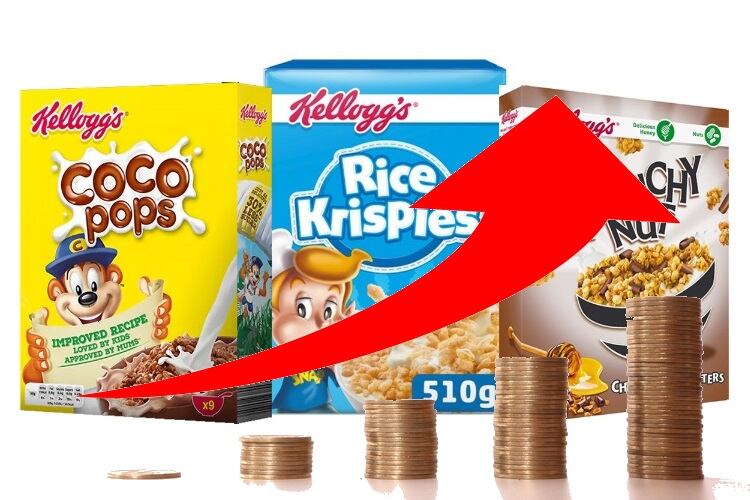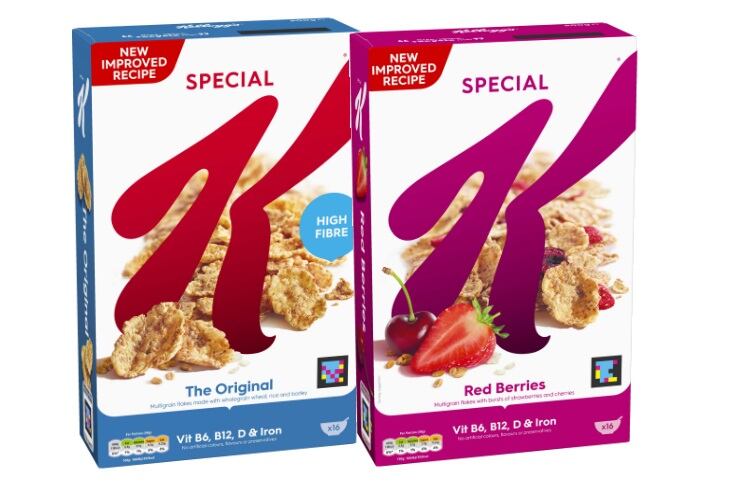In his judgement, Mr Justice Linden ruled the addition of milk to a breakfast cereal does not skew the fact that it contains excess fat, sugar or salt.
This was the argument brought forward by the Frosties and Coco Pops maker in April in a legal action against the Department of Health and Social Care (DHSC). Kellogg’s alleged the HFSS regulations are unlawful and noted the nutritional value of breakfast cereals will be assessed by their dry weight as sold, rather than how they are eaten – typically with milk.
“It is self-evident that breakfast cereals are not eaten dry,” argued Hickman.
“They are not designed to be eaten in that way, they are not marketed to be eaten in that way and they are not in practice eaten that way.”
He added the HFSS laws would cost the company £113m in lost sales.
Judge's verdict
However, Mr Justice Linden dismissed Hickman’s case, finding the addition of milk does not affect the fact the cereal is high in sugar. He also rejected Kellogg’s claim the government did not consult parliament properly.
“In my judgment, the true position is the fact that, in their detailed responses, none of the breakfast cereal manufacturers raised the issue during the consultation period of more than a year tends to support the view that the ‘as sold versus as consumed’ issue had long since been resolved, was well understood and was accepted in the sector,” he ruled.
He added there was certainly “no dispute” that breakfast cereals can be part of a healthy diet. “But the argument that there are nutritional benefits to the consumption of a given breakfast cereal does not affect the point that if it contains excess fat, sugar or salt, that feature of the product is adverse to a child’s health.
“Still less is it an argument against seeking to encourage, for health-related reasons, the promotion and consumption of breakfast cereals which contain less fat, sugar or salt. Nor does mixing a breakfast cereal, which is high in, for example, sugar, with milk alter the fact that it is high in sugar.
“The suggestion that Frosties should not be regarded as a less healthy product because of the nutritional value of the milk with which they may be consumed is surprising.”
The road ahead - cost to the company and the consumer
Mr Justice Linden noted that 54.7% of Kellogg’s current cereals will be classed as less healthy under the new regulations, while 30% of them take advantage of high-profile locations and promotions. Placement of HFSS foods at checkouts, shop entrances, aisle ends and prime online spots, along with multi-buy promotions will be banned from October 2023.
Kellogg’s UK’s revenue and channel director previously estimated that 2.5 million kilogrammes of sales will be lost as a result of restrictions on these location promotions – counting for approximately £5 million in annual profits, the judge said.
The DHSC has welcomed the judgement.
“The government is committed to tackling obesity, which is the second biggest cause of cancer in the UK and costs the NHS billions of pounds a year,” said a DHSC spokesperson.
“The judgment backs the government’s approach to restricting the promotion of less healthy breakfast cereals, which contribute a significant amount of sugar to children’s diets.
“Location promotion restrictions will come into force in October 2022 and are expected to deliver over £57 billion of health benefits.
“Together with the volume price restrictions, these changes will protect children up and down the country from products high in saturated fat, sugar or salt.”
Chris Silcock, Kellogg UK’s MD, said the company was “disappointed” in the verdict and sticks to its argument.
“We remain concerned at the way the government introduced these regulations – which, in our view, was without proper parliamentary scrutiny,” said Chris Silcock, Kellogg UK’s managing director.
“By restricting the placement of items in supermarkets, people face less choice and potentially higher prices. That’s why, in the midst of a cost-of-living crisis, we would strongly urge the government to rethink these regulations and put the consumer first.”
While still insisting that it is important that cereals are measured in a way that reflects how most people eat them – with milk – Silcock said the company does not intent to appeal and respect the decision of the courts.
He noted the loss could potentially result in higher prices for the consumer.





